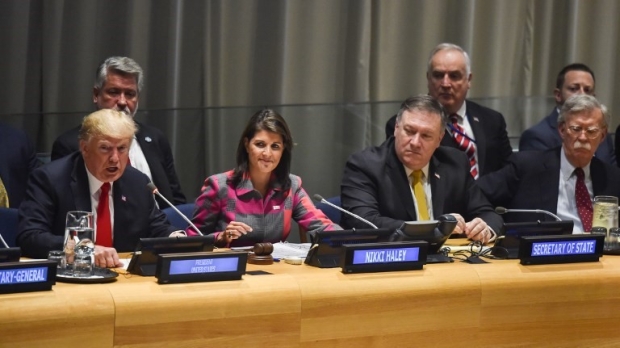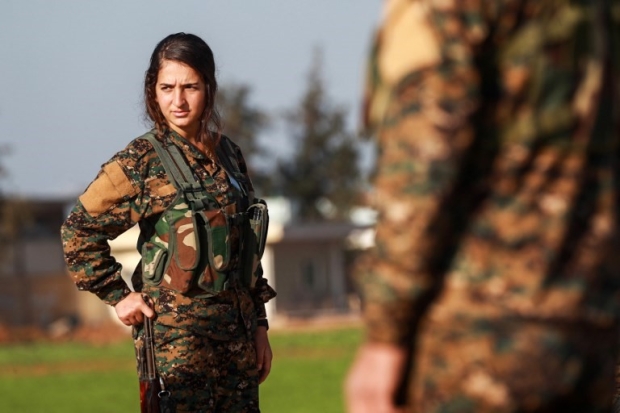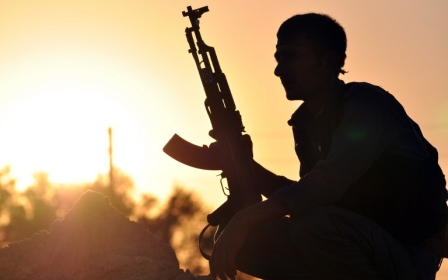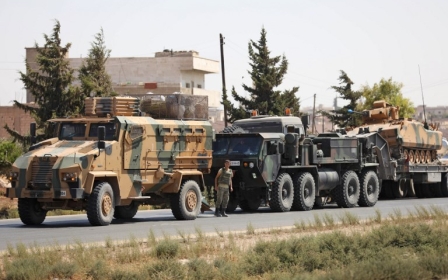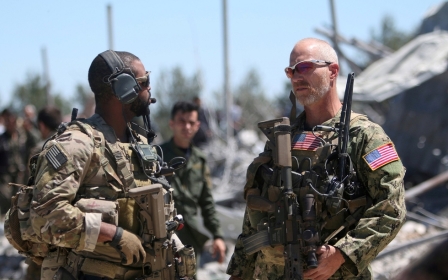How to prevent the rebirth of Islamic State in Syria
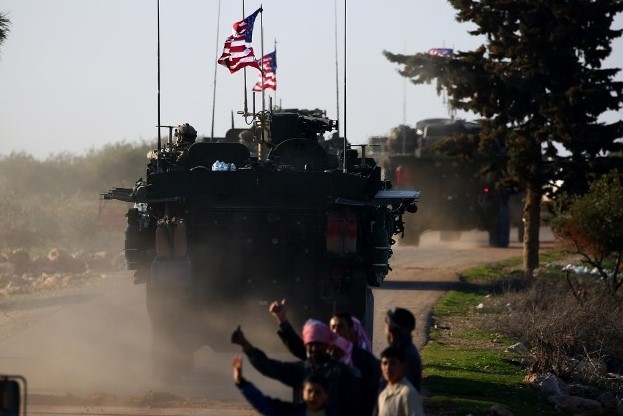
US President Donald Trump's decision to withdraw troops from Syria has taken everyone by surprise, including his main advisers. So far this decision has also determined two others; the resignation of both Secretary of Defense Jim Mattis and US Special Envoy for the Anti-Islamic State (IS) Coalition Brett McGurk.
It's a pity that both men have decided to step out over the first good decision that Trump has made about the Middle East during the last two years. The move is also coherent with Trump's electoral programme that aimed at ending US addiction to never-ending wars in the region. A trend apparently reinforced by the decision to halve the US military presence in Afghanistan.
Trump prevails
However the move contrasts with recent statements by a number of US officials, including Secretary of State Mike Pompeo, and National Security advisor, John Bolton, that the US military presence in Syria must continue so long as Iran remained in the country.
Trump's decision has signaled that the he does not agree anymore if he ever did with this policy. His primordial instinct against prolonged and excessive military commitments abroad, and the fulfilment of his constituency’s expectations, have prevailed over Washington’s inter-agency process so dear to the political-military establishment.
US troops in Syria were too little to change anything on the ground but still too big as a target for possible hostile forces
The US military presence in Syria, although devoid of solid legal grounds, had been initially framed within the legitimate war against IS. Shifting the rationale from combating IS to countering Iran's presence in Syria has been surprising- to say the least.
From the beginning this shift appeared unsustainable and for various reasons. Two thousand US soldiers in a vast and hostile environment, like the northeastern corner of Syria, could not have broken the solid, decades-long cooperation between Syria and Iran; nor was their presence big enough to curb Turkish, Syrian and Iraqi shared interests in stopping Kurdish aspirations to independence.
The possiblity of “collateral damages” by a planned Turkish attack to the US-backed Kurdish People's Protection Units (YPG) could have accelerated Trump's decision to leave Syria. Ultimately, US troops in Syria were too little to change anything on the ground but still too big as a target of possible hostile forces. It could be a coincidence but immediately after the US decision, Turkey put on hold its claimed intention to attack YPG in north-eastern Syria.
Many defeats
Trump’s announcement claimed several winners and losers. The US political and security establishment can be counted among the defeated. Both the liberal interventionists and the neoconservatives have expressed considerable disappointment and rage at Trump’s decision. The former consider that their political design to maintain a sting against Syrian President Bashar al-Assad has been further weakened by the decision.
An incomplete victory for Assad would have delivered a crippled Syrian sovereignty constantly subject to Western blackmail. This strategy has now failed.
The US withdrawal from Syria deprives Israeli Prime Minister Netanyahu of a valid asset on the ground that, if attacked, could also have been useful to trigger an escalation between US and Iran
In regards to the neocons, although they shared the above-mentioned aims, they also hoped to continue using the Syrian territory to maintain strong pressure on Iran. Of course both aims can still be pursued but it is worth wondering how effectively considering the forthcoming disappearance of the deterrent effect of US boots on the ground in Syria.
Israel is also among the defeated actors. It has always shared -if not inspired- the neocons's plan to press Iran in Syria. The US withdrawal from Syria deprives Prime Minister Benjamin Netanyahu of a valid asset on the ground that, if attacked, could also have been useful to trigger an escalation between US and Iran.
The Kurdish people once again smell the betrayal of their cause. Syrian Kurds, in particular, could soon share the same frustration that has affected their Iraqi brethern following the recapture of Kirkuk by Iraqi forces and the territorial downsizing of the Kurdistan Region of Iraq some 14 months ago.
The real test
Syria, Iran, Russia and Turkey, on the other end, appear all as beneficiaries of Trump’s decision.
Russia reinforces its ambition to expel the United States from the Middle East, strengthening from its point of view, the security of its southern front while world geopolitical balances begin to rotate towards Russian-Chinese cooperation against the framework of the Belt and Road Initiative (BRI), that sees in the Middle East its soft belly.
Assad's survival has been strengthened and accompanied by increased Arab openings. In the medium term, the Syrian government could also aspire to recover – if Turkey will allow it - full sovereignty over all of its territory.
Finally, Tehran's leadership has neutralised the Western attempt to turn the Syrian conflict into its own Afghanistan.
In the following months the real test for the “winners” will be represented by how cleverly they will administer their success. Overconfidence and an impulse to over-win could be major mistakes. The major challenge will be to prevent the rebirth of IS and fill the void left by the American withdrawal; the onus is on both Russia and Iran in particular, to ensure that filling this void will not trigger a renewed Turkish-Syrian contraposition.
Although IS is now credited with control of only one percent of the territory it originally retained, historical experience teaches us that the capabilities of such groups have been widely and easily underestimated, with catastrophic consequences. It should not happen again.
- Marco Carnelos is a former Italian diplomat. He has been assigned to Somalia, Australia and the United Nations. He has served in the foreign policy staff of three Italian prime ministers between 1995 and 2011. More recently he has been Middle East Peace Process Coordinator Special Envoy for Syria for the Italian government and, until November 2017, ambassador of Italy to Iraq.
The views expressed in this article belong to the author and do not necessarily reflect the editorial policy of Middle East Eye.
Photo: A convoy of US forces armoured vehicles drives near the village of Yalanli, on the western outskirts of the northern Syrian city of Manbij on 5 March, 2017 (AFP)
This article is available in French on Middle East Eye French edition.
New MEE newsletter: Jerusalem Dispatch
Sign up to get the latest insights and analysis on Israel-Palestine, alongside Turkey Unpacked and other MEE newsletters
Middle East Eye delivers independent and unrivalled coverage and analysis of the Middle East, North Africa and beyond. To learn more about republishing this content and the associated fees, please fill out this form. More about MEE can be found here.



